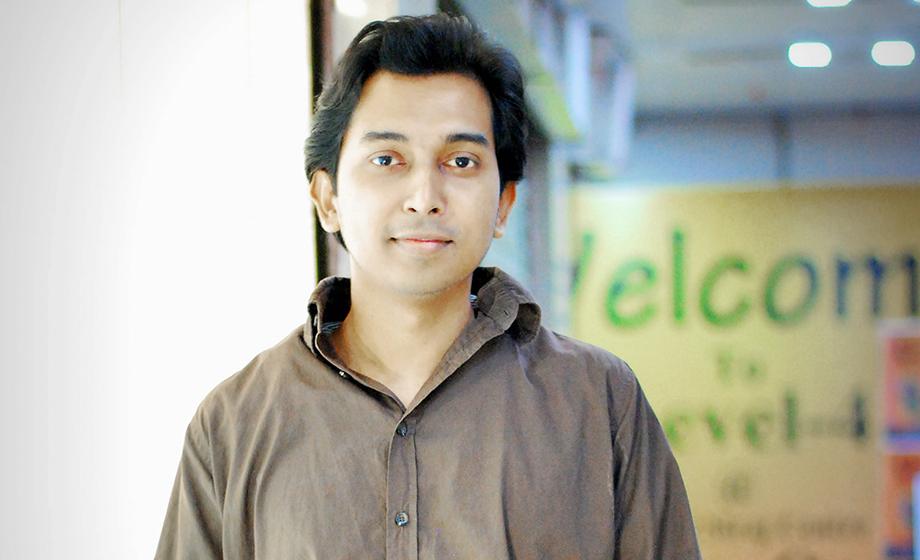
Thanks to the Clark University Graduate School of Management master’s in business analytics (MSBA) program, Shibbir Khan, M.S. ’18, has not only kept abreast of the latest information technologies, he’s also expanded his career contacts at multinational enterprises like The Walt Disney Company and Bank of America.
Now those career contacts have paid off. Less than a month after graduation, Khan already had a job offer, and he has more interviews scheduled.
Khan credits the MSBA program for providing him with multiple opportunities, including networking with potential employers at some of the world’s largest analytics conferences. In an impressive achievement during their second semester, Khan and four of his MSBA peers — Xiaojing Zhao, Nilam Adhikari, Su Li, and Zihan Fan — were selected to participate in the 2018 SAS Global Forum in Denver, Colorado.
SAS is a corporate leader in analytics software technologies, which Clark’s MSBA students learn and use. The company’s annual global forum typically brings together more than 5,000 like-minded analytics enthusiasts, experts, and software users who take advantage of hundreds of workshops, demonstrations, and networking opportunities.
“You really have to be there to fathom the grandeur of this global forum and to realize the massive scale on which they operate,” Khan said. “The sessions we were part of, coupled with the networking opportunities with some of the pioneers in the industry, made for an unparalleled experience.”
Accompanied by Pankush Kalgotra, assistant professor of business analytics, Khan and his peers shared their work during the forum’s E-Poster sessions, where attendees could see real-use examples of SAS applications.
Khan’s project was titled “Who are Likely to Stay: A Predictive Modeling Journey Through H1-B to U.S. Permanent Work Visa.” The topic is close to his heart; Khan has remained in the United States as part of the U.S. Citizenship and Immigration Services’ Optional Practical Training (OPT) option, which gives international students graduating in STEM-related fields three years to find employers to hire and sponsor them for H-1B visas. Khan, who hopes to obtain such a visa, researched the program extensively for his project.
“It occurred to me that it could be a fruitful exercise to investigate the last couple years’ worth of data to see what the common traits are among the candidates being selected into the program,” he said.
American technology companies frequently compete for talented international employees who hold H-1B visas. Khan built predictive models to help these employers signal which H-1B visa recipients would be most likely to sustain employment and eventually succeed.
“With such high demand and intense competition for talent,” he added, “it’s vital to ensure that all of the company’s time and money is spent on the workers most likely to succeed.”
Khan’s project attracted interest at the SAS Global Forum. U.S. Citizenship and Immigration Services officials met with him to discuss his research and findings. In addition, one of the forum’s organizers highlighted Khan’s project in a blog post, “Students Showcase Power of Open Data to Help Government.”
Kalgotra was proud to see Khan and the other students “showcase their analytics skills to future employers. It was also beneficial for them to meet SAS users from across the globe and see first-hand what companies are doing with data analytics.”
In addition to their project presentations, Khan and his peers took advantage of some of the hundreds of workshops and trainings offered at the forum. Sessions included one with Honeywell International on implementing advanced analytics, and a session explaining how Hyundai Motor America is using analytics to create a better customer experience.
Zhao was particularly excited to connect what she learned at the conference to topics she studied in her classes in Clark’s Graduate School of Management (GSOM).
“I attended several presentations and learned a lot,” Zhao said. “I found out that the technologies presenters used are exactly what we studied in class, such as SAS Business Intelligence and Data Structure, and saw how these can be applied differently in businesses and corporations.”
For Li, “the SAS Forum was definitely a great experience to network with potential employers and understand the skill sets that are required in the industry. Being offered such an excellent opportunity will provide a very competitive addition to my résumé.”
Jing Zhang, professor of management and director of the MSBA program, noted that GSOM faculty “make experiential learning a priority, with hands-on projects a significant part of the analytics program. Seeing our students’ work showcased at such a notable conference is a rewarding experience that testifies to the importance of this hand-on approach.”
Khan felt fortunate to have attended the forum and especially to have made employer connections in the industry. He hasn’t decided yet if he will take the job he was offered, and he’s leaving his options open.
“I’m looking forward to exploring opportunities,” he added, “and learning new things wherever my future takes me.”


